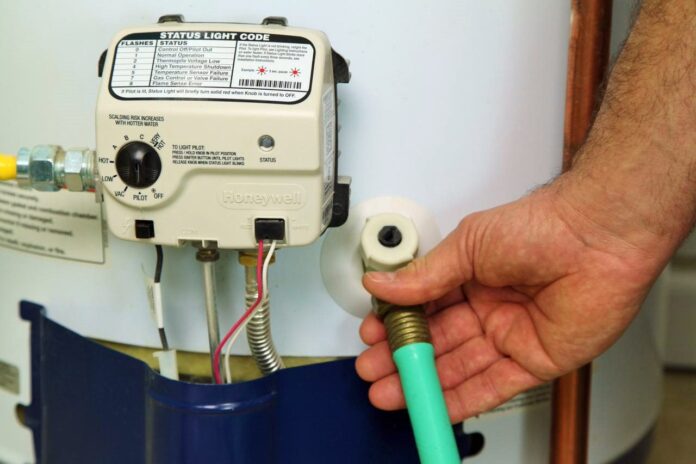
By Mohammed Nazeem
Kooline Plumbing
A water heater flush is performed by a professional, who drains your water heater tank of all its water. It may sound pointless, but the real benefit behind draining the water is to flush out all the sediment that accumulates at the bottom of the tank.
What is this sediment and where is it coming from?
The sediment is part of your water, and as your water heater raises the temperature of the water, the minerals, like calcium and magnesium are released into the bottom of the tank. Water with these elements is often referred to as “hard water.” You see, many areas in Arizona have hard water.
Over time, the minerals in hard water settle to the bottom of your water heater, creating “sediment buildup.”
Now, a small amount of sediment buildup isn’t necessarily harmful. But over the years, if your water heater doesn’t get flushed, that sediment can cause your tank to burst (among other costly problems).
How often do I need to flush my water heater?
The frequency depends on how hard your water is.
Three problems you’ll avoid with a water heater flush:
A premature breakdown
As sediment starts to build up on the inside of your tank, it insulates the water from the burners. This forces your water heater to eventually overheat the water. And as water heats, it expands. So, the hotter the water gets, the more pressure builds up inside the tank—until it bursts a leak, or worse, explodes.
And the worst part? Before your water heater dies, you’ll likely see frequent, expensive repairs due to sediment buildup. For example, if sediment collects on your water heater’s heating element, it can cause it to overheat and require replacement.
Hot water shortage
This problem is simple: if you have a 30-gallon water heater with 10 gallons of sediment, you now have a 20-gallon water heater. Which is a drastic difference in hot water supply, especially if you have several people in your household.
Noise from water heater.
If a water heater has a good amount of sediment build up inside the tank, it will start making loud popping or knocking noises. Those popping noises are caused by overheated water and steam that jostles the sediment at the bottom of the tank as it tries to rise.
602-920-6000
KoolinePlumbing.com
This sponsored content was first published in the November edition of InMaricopa magazine.


![Elena Trails releases home renderings An image of one of 56 elevation renderings submitted to Maricopa's planning department for the Elena Trails subdivison. The developer plans to construct 14 different floor plans, with four elevation styles per plan. [City of Maricopa]](https://www.inmaricopa.com/wp-content/uploads/2024/04/city-041724-elena-trails-rendering-218x150.jpg)
![Affordable apartments planned near ‘Restaurant Row’ A blue square highlights the area of the proposed affordable housing development and "Restaurant Row" sitting south of city hall and the Maricopa Police Department. Preliminary architectural drawings were not yet available. [City of Maricopa]](https://www.inmaricopa.com/wp-content/uploads/2024/04/041724-affordable-housing-project-restaurant-row-218x150.jpg)





![Silk Press Xpress ready to welcome new clients Maricopa Chamber of Commerce Director Kelly Anderson and Councilmember Henry Wade smile as LaQuinta Fisher cuts the ribbon in front of her new salon, Silk Press Xpress, on April 6, 2024. [Monica D. Spencer]](https://www.inmaricopa.com/wp-content/uploads/2024/04/spencer-040624-silk-press-xpress-ribbon-cutting-web-01-218x150.jpg)


![Alleged car thief released without charges Phoenix police stop a stolen vehicle on April 20, 2024. [Facebook]](https://www.inmaricopa.com/wp-content/uploads/2024/04/IMG_5040-218x150.jpg)

![MHS G.O.A.T. a ‘rookie sleeper’ in NFL draft Arizona Wildcats wide receiver Jacob Cowing speaks to the press after a practice Aug. 11, 2023. [Bryan Mordt]](https://www.inmaricopa.com/wp-content/uploads/2024/04/cowing-overlay-3-100x70.png)


